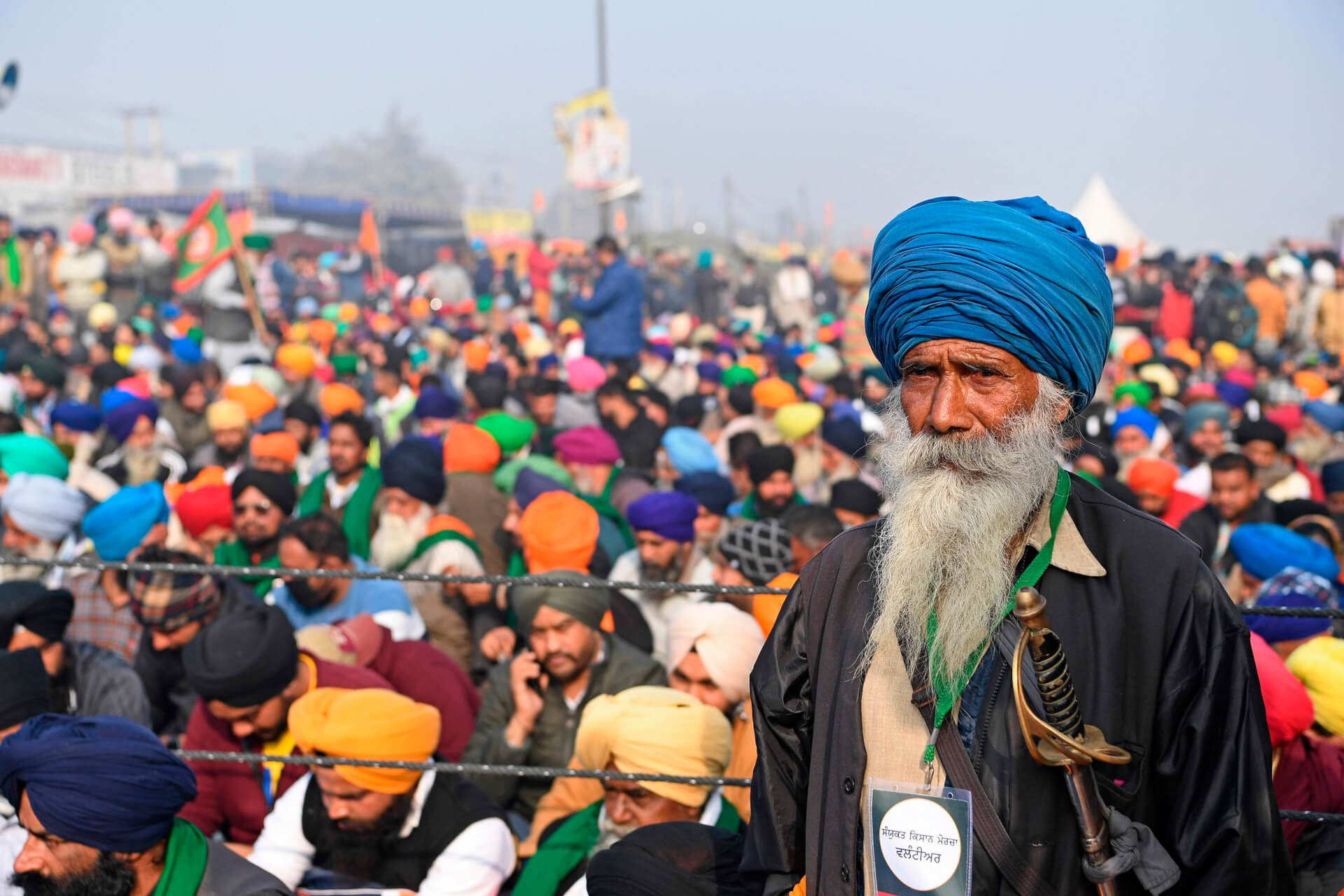The Samyukta Kisan Morcha (SKM), an umbrella organisation comprising 40 farmers unions, has called off the protest that saw tens of thousands of farmers gathered at the capital city’s borders for over a year. This comes after the Indian government and the farmers’ groups reached a compromise to settle five out of six of the SKM’s demands.
The SKM received a letter from the central authorities on Thursday with a revised proposal from Sanjay Agarwal, the Secretary to the Indian Union Ministry of Agriculture and Farmers’ Welfare.
Farmers finally call off protest. Delhi borders likely to be vacated by tomorrow. The suffering of the common masses will come to an end at the protest locations where roads were blocked since more than a year.
— Aditya Raj Kaul (@AdityaRajKaul) December 9, 2021
The letter stated that the government would set up a committee to decide on the SKM’s demand to guarantee a minimum support price (MSP) for food grains. The government also agreed to discuss the Electricity (Amendment) Bill, 2021 before it is tabled in the Parliament. Protesting farmers have previously urged the central government to take back the draft electricity bill over concerns that their access to free or subsidised power, primarily used for irrigation, will be taken away by state governments.
Succumbing to the farmers’ other demands, the government has vowed to compensate farmers who died during the year-long protests. The letter also promised to urge state governments to take back the cases filed against the farmers during this time. The revised proposal said that while several states, including Uttar Pradesh, Haryana, and Madhya Pradesh, have agreed, the government has appealed to other states to follow.
In addition, the letter vowed to introduce an exemption from penalties for crop burning. However, the letter did not mention anything on the SKM’s demand for the dismissal of Union Minister Ajay Misra Teni, whose son was responsible for the Lakhimpur Kheri incident in October, when four protesters and a journalist were run over by a car.
After receiving the letter, the SKM convened a meeting at the Singhu border near Delhi and decided to end the protest. Following the meeting, the group released a statement saying that it “formally announces the lifting of the morchas at Delhi borders on national highways and various other locations.” They celebrated the government’s letter as a “historic and fabulous victory” dedicated to the 715 martyrs of the movement.
Farmers have begun to call off their agitation at #Ghazipur border #FarmersProtests #FarmLawsRepealed pic.twitter.com/v1MdfqUNAS
— Milan Sharma (@Milan_reports) December 9, 2021
However, Yogendra Yadav, a prominent leader of the movement and a member of the SKM, said that although the protests had been called off, the farmers’ struggle continues. He said that the MSP issue and the Electricity Bill both continue to threaten the livelihood and interests of the farmers. He also highlighted that Ajay Misra Teni continues to be a part of the Indian Cabinet.
Along these same lines, another leader of the movement, Gurnam Singh Churni, said the SKM would convene again on January 15 to assess the government’s progress on its promises. If unsatisfied, the farmers could once again resume the demonstrations, he noted.
During the ongoing Winter Session of the Parliament, the Modi government decided to repeal the three controversial farm laws, the introduction of which resulted in widespread protests since September 2020. The agricultural reform bills that led to this nationwide agitation—The Farmers’ Produce Trade And Commerce (Promotion And Facilitation) Bill, The Farmers (Empowerment and Protection) Agreement on Price Assurance and Farm Services Bill, and The Essential Commodities (Amendment) Bill—had been criticised for being too liberalised and assuming that the current structure is devoid of private entities.
The government’s decision to repeal the laws last month has been attributed in part to the upcoming state elections in Uttar Pradesh early next year, given that a significant proportion of the state’s population is employed in the agriculture industry.

